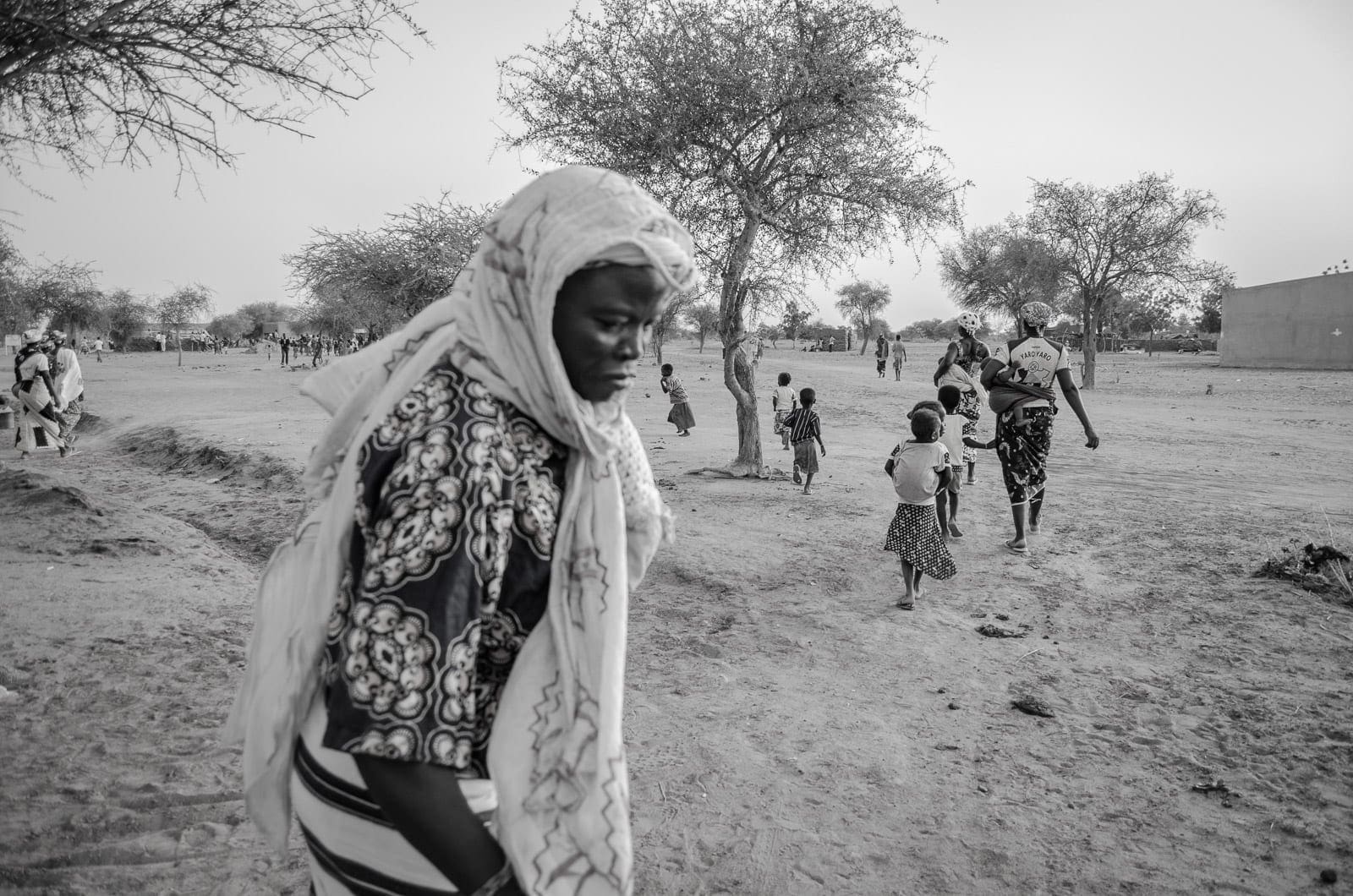When I arrived in Kouini, a small village northeast of Burkina Faso that could not be found on maps, I did not know what to expect. I had read, studied, and asked my fellow travellers, but it was my first experience in Africa and my journey began with a lot of uncertainty.
Even at that time, it was 2015, the security of the area was not completely guaranteed due to some kidnappings that year in the north of the country. For this reason, it was impossible to travel to Mali or to visit the wonderful sand mosques near the border between the two countries, in the Sahel desert. So I stayed for a fortnight in the village, a guest of the Human Development Centre Association (CESVIUM), which has been working in Burkina Faso for over 30 years. In those days I decided that I would document Kouini’s life, without going in search of exceptional stories, but simply observing what was happening around me. Almost immediately I realised that most of the daily workload fell on the shoulders of the women and that I would therefore spend most of my time with them.

It was the women who came out of their huts first when the village was still shrouded in darkness. The only sound that could be heard at that moment of absolute darkness was the sound of mortars: the women had begun to pound millet. Afterwards, at first dawn, the children, sometimes accompanied by their mothers or older sisters, could go to fetch water from the well, indispensable for preparing Tô, a kind of ‘millet porridge’ that is the staple diet of the rural populations of Burkina Faso.
But the tasks of preparing food and looking after the household were not the only ones entrusted to women. In addition to the task of milling millet grains, an activity that was normally very time-consuming, women cultivated the few fruits and vegetables they produced in their home gardens or gathered in the surrounding area. They often also worked in the fields, so much so that in Burkina Faso, as in other regions of sub-Saharan Africa, one can speak of the ‘feminisation of agriculture’, referring to the increasing presence of women in agricultural production and the decreasing number of men working in the sector. One of the main causes of this phenomenon is the exodus of the rural male population to urban or mining areas in search of better income-generating opportunities.
In Kouini, every day flowed the same, the women took care of the children and worked hard in the meantime; the village would not have survived without them.
I have never stopped to be surprised by the strength of these women and to thank them for their welcome, whenever they allowed me to enter their homes and in their lives. When I left, I hoped to return soon, but so far it has not been possible. Today, after a very difficult period, in which due to continuous terrorist attacks in the vicinity of Kouini many people were forced to leave the village, the situation has improved. Displaced families have returned to their mud houses, schools have reopened and we have returned to that fragile balance described by Kapuściński and which characterises many areas of this complicated, yet incredibly fascinating continent.

